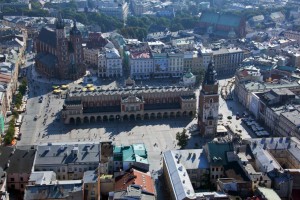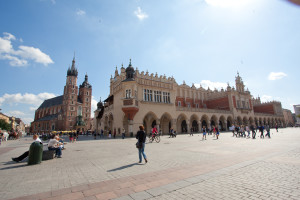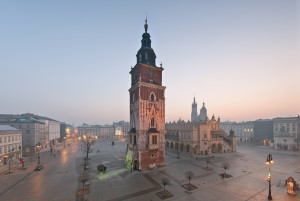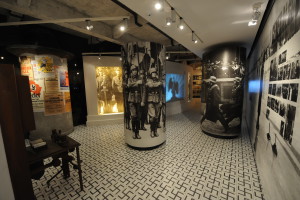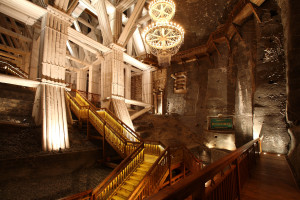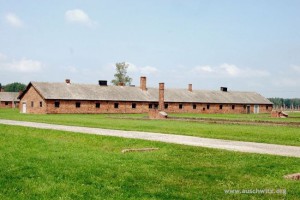Krakow
There are must-see locations in all districts. The Mediaeval and Renaissance buildings of the Old Town, the Jewish Kazimierz district, Stare Podgórze are just some of the great places in Kraków. Lovers of modern history should find their way to Nowa Huta – an urban pearl of Socialist realism architecture. Kraków is also a city of churches – there are over 120, including many ancient buildings.
Wawel Castle and Hill
Wawel Hill – a Jurassic limestone rock, a dominant feature in the landscape of Cracow (about 228 m above sea level) was formed about 150 million years ago. Situated on the bank of the Vistula River, surrounded by waters and marshes, the hill provided a safe haven for people who have settled here since the Palaeolithic Age. At present, the main curators of Wawel are Wawel Royal Castle – State Art Collection and the Metropolitan Basilica Board on Wawel Hill.
Schindler’s Factory
The manufacturing plant was opened two years before the Second World War. Established by three Jewish entrepreneurs, it became property of a Sudeten German, Oskar Schindler (1908-1974) in autumn 1939. Presumably a collaborator of the Abwehr, he had the additional freedom of action granted by NSDAP membership. Schindler employed Jews in his Deutsche Emalien Fabrik (DEF), generally known as Emalia, thus saving them from deportation and transportation to concentration camps.
Around Krakow
Wieliczka Salt Mine
The Salt Mine – one of the twelve magnificent places and buildings – was chosen in 1978 to be enlisted on the first UNESCO World Heritage List.
Magnificent chambers chiselled out in rock salt. Amazing underground saline lakes, majestic timber constructions and unique statues sculpted in salt. Almost 3 kilometres of meandering corridors, 800 steps to climb of which 350 have to be descended to reach the depth of 135 meters underground.
Distance:
about 10 km from Kraków
Auschwitz-Birkenau German Nazi Concentration and Extermination Camp
Auschwitz has become a symbol of terror, genocide, and the Holocaust. It was established by Germans in 1940, in the suburbs of Oświęcim, a Polish city that was annexed to the Third Reich by the Nazis, its name was changed to Auschwitz.
Distance:
about 65 km from Kraków




















